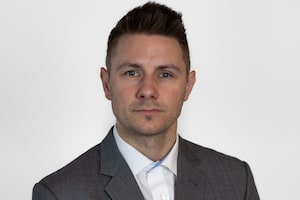Medical Mushroom Dispensary and Coca Leaf Cafe located at 651 East Hastings Street in Vancouver on Jan. 26. In response to the recent raid, owner of the Coca Leaf Cafe Dana Larsen, said he will continue to push for the legalization of psychedelics by employing the same tactics he and other illegal entrepreneurs did with cannabis: keep reopening as a challenge to the authorities.Rafal Gerszak/The Globe and Mail
Vancouver police say they have been so successful targeting traffickers of poisoned opioids and other deadly street drugs that the department was recently able to pivot to also tackling the sale of lower-priority psychedelics by raiding a chain of three magic mushroom dispensaries.
Police arrested the owner – a prominent local cannabis and psychedelic legalization activist – on Wednesday and seized tens of thousands of dollars’ worth of psilocybin and other hallucinogenic products from the stores, which brazenly advertise their wares on three of the city’s busiest thoroughfares. The police department had sat by as a dozen or so of these shops opened up over the past two years, often stating it is more concerned with gangsters using violence to sell the poisoned street drugs killing an average of seven people a day in the province.
Until now.
“We have always been clear that our biggest priority is to target organized criminals who are manufacturing, producing, and profiting off the harmful opioids that fuel the overdose crisis,” Vancouver Police Department spokesperson Sergeant Steve Addison said this week.
“While this remains the primary focus of our drug enforcement efforts, our recent successes in a number of organized crime investigations ... have allowed us to turn some attention to other criminal enterprises.”
A day after the raid, the chain’s flagship store called the Coca Leaf Café, which also does business as the Medicinal Mushroom Dispensary, reopened to continue selling magic mushroom products about a five-minute walk from the central intersection of the Downtown Eastside.
Owner Dana Larsen told The Globe and Mail his other locations in the middle and south of the city would reopen to do the same by Friday, but restocking the LSD (commonly known as acid) and DMT (a mind-altering ingredient found in plants or produced synthetically in the form of a powder) would take longer. Getting coca leaves from South America would take even longer still, he said.
But, Mr. Larsen, a long-time organizer of Vancouver’s 4/20 cannabis events, said he will continue to push for the legalization of the psychedelics by employing the same tactics he and other illegal entrepreneurs did with cannabis: keep reopening as a challenge to the authorities.
“I always believe it’s important to reopen again as quickly as possible to show that we’re planning on continuing and to show that resistance,” said Mr. Larsen, whose illicit cannabis dispensary next to the Coca Leaf Café was also raided Wednesday by B.C.’s Community Safety Unit – the team formed after the legalization of the drug to crack down on unlicensed sales.
Sgt. Addison said no charges have been recommended as a result of the four raids, but cautioned that the investigation continues and the police department is monitoring the reopenings.
Mike Farnworth, B.C.’s Solicitor-General and Minister of Public Safety, did not immediately respond to a request to comment Thursday, but has previously said mushroom dispensaries should be denied business licences of any kind and be shut down immediately.
The federal Liberal government has repeatedly said it is not interested in legalizing more drugs after cannabis. Meanwhile, Ottawa has heavily restricted access to psilocybin, with only two hundred or so patients and health care workers being granted access over the past three years. These patients have often taken the drug as a way to deal with anxiety and depression brought on by a terminal illness.
Health Canada has stated that magic mushrooms do not usually lead to addiction, but a user may experience anxiety, fear, nausea and muscle twitches when they take the drug. Since last year, the department has also greenlit 21 clinical trials investigating psilocybin.
Jack Lloyd, co-counsel for Mr. Larsen in his business licensing fight with the city over his magic mushroom stores, said another legal team he is on represents several terminally ill people in the early stages of a Charter of Rights and Freedoms challenge of Health Canada’s current program for psilocybin access.
Mr. Lloyd said mushroom dispensaries provide the drug to patients who can’t navigate Health Canada’s various requirements for a legal exemption, such as having a doctor willing to accept delivery of synthetic psilocybin from a licensed dealer. Mr. Lloyd said he believes Vancouver Mayor Ken Sim and his counsel directed the police to do this recent 180 on enforcement because his client is poised to overturn Vancouver’s attempt to shut him down for not abiding by its bylaws.
“In a sense, they don’t want to deal with my arguments about these licences and they said, ‘Okay, screw it. We’ll just send the police in,’” said Mr. Lloyd, who also represents owners of some of the roughly two dozen illegal mushroom dispensaries operating in Ontario, where police frequently raid these stores.
Sgt. Addison rejected the allegation his department was influenced by city hall, stating it determines its own investigative priorities “and does not take direction from outside agencies or other levels of government.”
Mr. Sim did not immediately respond to a request for comment Thursday afternoon on the allegation and the recent raids. A statement this year said these dispensaries are not permitted to operate but council had no plans to pass any bylaws regulating them, noting that the sale of illicit substances falls under Ottawa’s jurisdiction.
 Mike Hager
Mike Hager